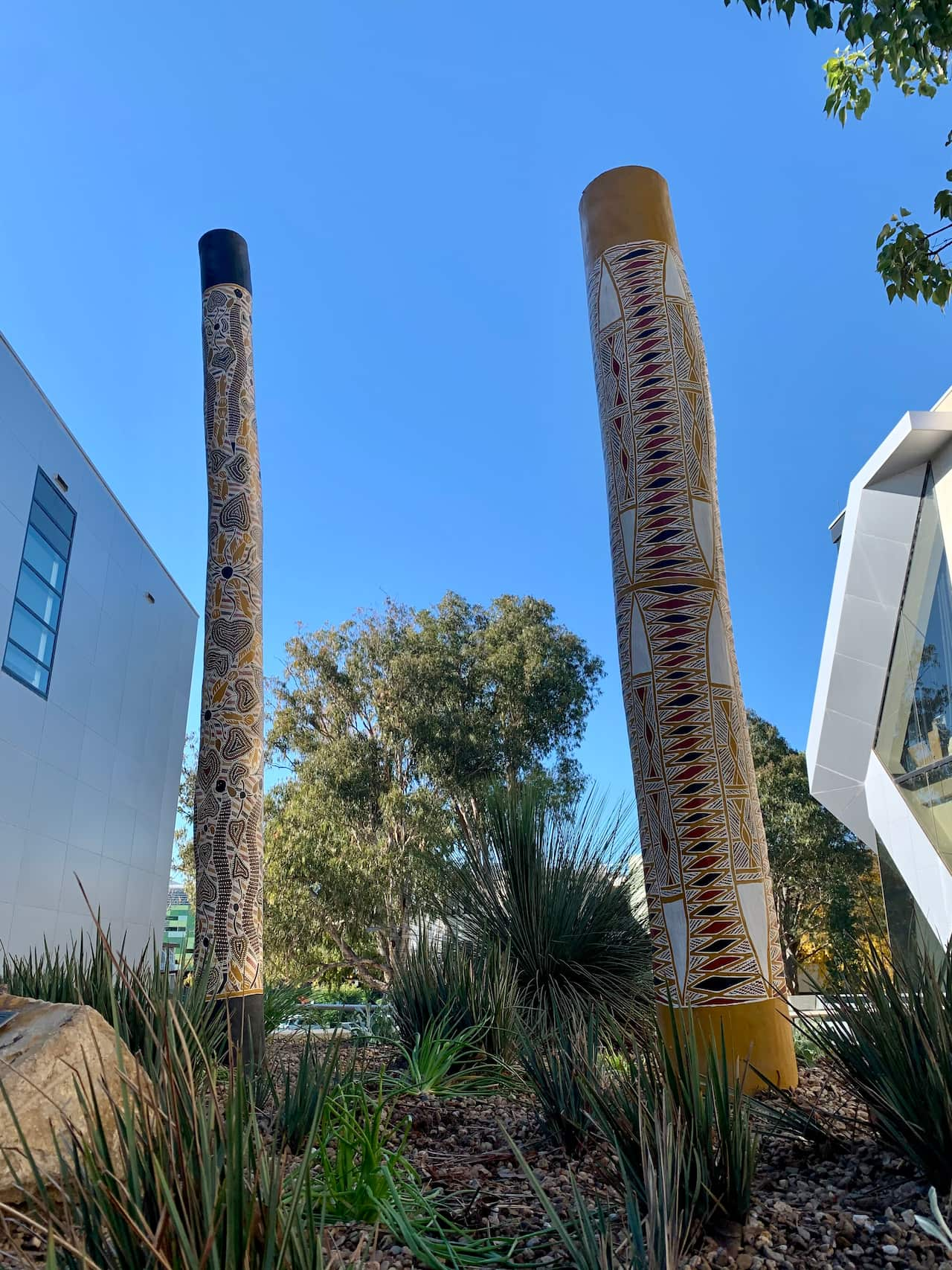A ceremony has been held to symbolise the beginning of a respectful relationship between the Galiwin'ku people and the University that held blood samples of their ancestors for more than 50 years.
The blood, or 'manggu' in the local Yolngu language, was collected after a typhoid outbreak on Galiwin'ku in 1968 and 1969.
The Australian National University in Canberra houses up to 7,000 items that were taken from 35 different First Nations communities - including the Galiwin'ku.
Over 200 samples of blood, which were taken without consent, were returned to East Arnhem Land in November 2019.
This week, two burial poles were erected at the University that are said to represent the end of the decades-long journey. Chairperson of the Yalu Aboriginal Corporation, Ross Wunungmurra, said he was shocked when he first found out of the samples' existence.
Chairperson of the Yalu Aboriginal Corporation, Ross Wunungmurra, said he was shocked when he first found out of the samples' existence.

Burial poles at the Australian University signifying the return of blood samples to the Galiwin'ku Source: NITV News: Ryan Liddle
“When the ANU first contacted us about the DNA samples we went straight to our community and asked, ‘What do we want to do with these?’ the community members and family said, ‘We want them home’," he said.
"Today’s ceremony signifies that that long process is now complete."
Years in the making, the repatriation has been overseen by Gimuy Walubara Yidinji woman Azure Hermes, the Deputy Director for the Universities' Centre for Indigenous Genomics.
"Since 2012 the ANU has been trying to track down the participants and their descendants to ask them if they’re okay with us having the samples, and if they aren’t what they’d like us to do with them, (whether) they want them kept, destroyed or taken back to country for ceremonial reburial.” For the Gailwin’ku people, the connection to the blood is sacred and Ms Hermes committed to sending the samples home.
For the Gailwin’ku people, the connection to the blood is sacred and Ms Hermes committed to sending the samples home.

Cyril Bukulatjipi made the trip from Elcho Island to Canberra for the ceremony. Source: NITV News: Ryan Liddle
"They have such a spiritual connection ... it’s not just three millilitres of blood, there’s actually a human face behind those samples," she said.
"Knowing they have such a huge respect for those who have passed away they wanted them buried with full ceremony, but they also allowed us to keep some in our collection for DNA extraction and to collect data.”
"Indigenous people are the most underrepresented people in genome medicine, which means we really are missing out on good quality health and medical research."
Mr Wunungmurra said the Galiwin'ku community are proud of what’s been achieved, and are looking towards the future optimistically.
“We are giving thanks to this university because they had looked after our samples for all of this time, he said.
"We give these totem poles as a memory of us and so we can work in partnership.”

Chairperson of Yalu and Yolngu man, Ross Mandi Wunungmurra, with the samples on Galiwin'ku in 2019. Source: Supplied

